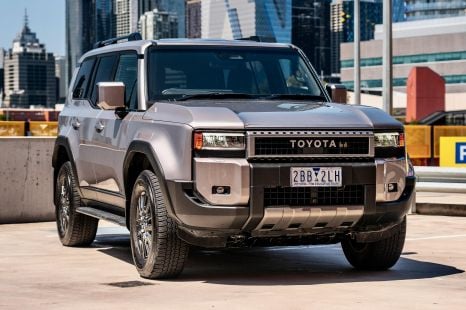

Max Davies
2025 Toyota Prado GXL review
3 Months Ago
There's a new Hyundai Palisade around the corner and a compelling new Santa Fe here now, but this is still a competitive large three-row SUV.
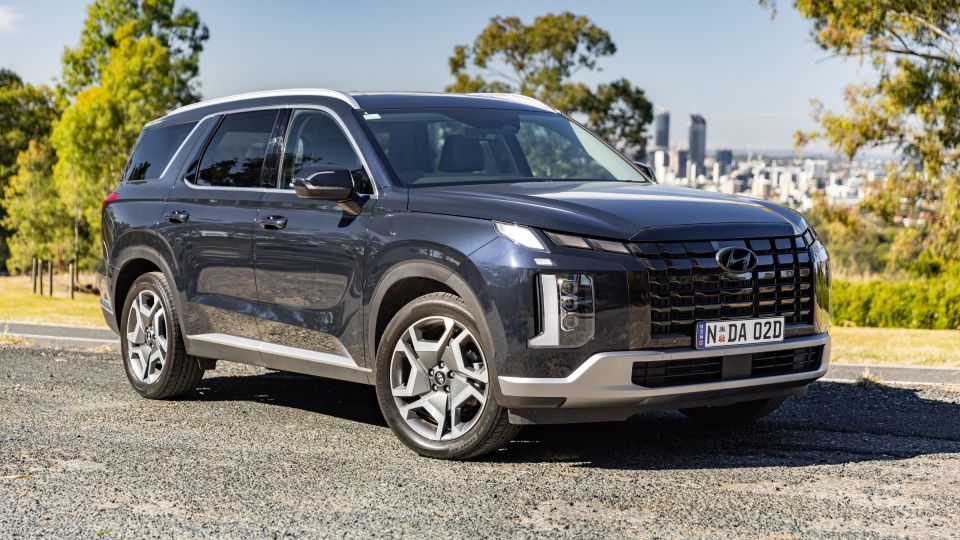


News Editor

News Editor


News Editor

News Editor
Quickly see how this car stacks up against its competition. Select any benchmark to see more details.
Where expert car reviews meet expert car buying – CarExpert gives you trusted advice, personalised service and real savings on your next new car.
How fast things move in the new car market.
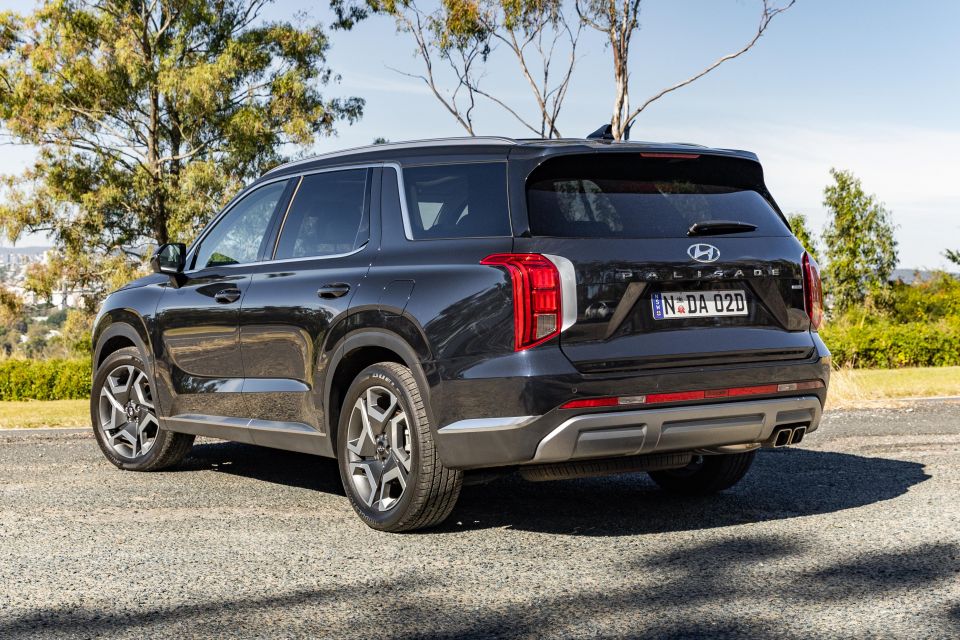
When I last drove a Hyundai Palisade late in 2022, I was thoroughly enamoured with this boldly styled, smartly packaged SUV.
Two years later, it’s still worth recommending, but its lustre has dulled somewhat.
That’s not because Hyundai has made any negative changes to its flagship SUV, but rather because it has compelling in-house competition in the (boxy) shape of the new Santa Fe.
The Palisade offers something the Santa Fe doesn’t, however, and that’s a diesel engine. And if that’s not enough to get you to spend more for Hyundai’s largest SUV, there’s a new generation waiting in the wings.
Let’s see how the current one stacks up first, however.
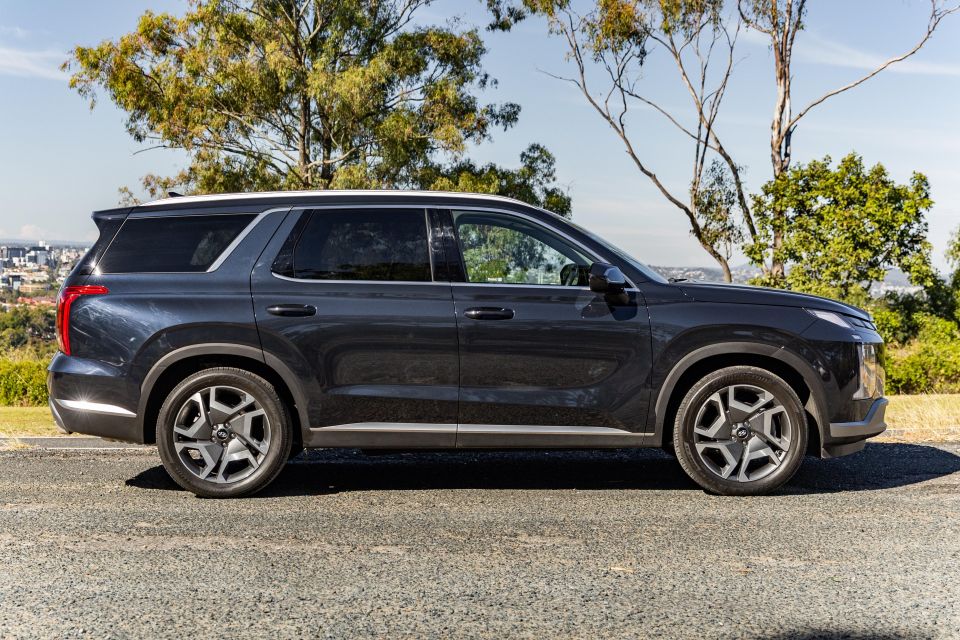
We’ve put the base Elite to the test with the optional turbo-diesel engine, the only way to get all-wheel drive; if you stick with the petrol V6, in Australia at least you’re forced to accept front-wheel drive.
The Elite has quite a different look to the pricier Calligraphy, so it doesn’t look cheaper – just different. There’s a darker grille instead of a flashy chrome one, as well as different wheels.
You may actually prefer the look of this over the Calligraphy, though if you want a blacked-out look for the flagship you can opt for the Black Ink version.
Combined with the lovely Moonlight Blue paint finish, the Palisade Elite is still a handsome SUV even at the end of its life cycle.
| Model | Price before on-roads |
|---|---|
| 2025 Hyundai Palisade Elite FWD V6 | $66,800 |
| 2025 Hyundai Palisade Elite AWD diesel | $70,800 |
| 2025 Hyundai Palisade Calligraphy FWD V6 | $75,900 |
| 2025 Hyundai Palisade Calligraphy Black Ink FWD V6 | $78,400 |
| 2025 Hyundai Palisade Calligraphy AWD diesel | $79,219 |
| 2025 Hyundai Palisade Calligraphy Black Ink AWD diesel | $81,719 |
To see how the Hyundai Palisade lines up against the competition, check out our comparison tool.
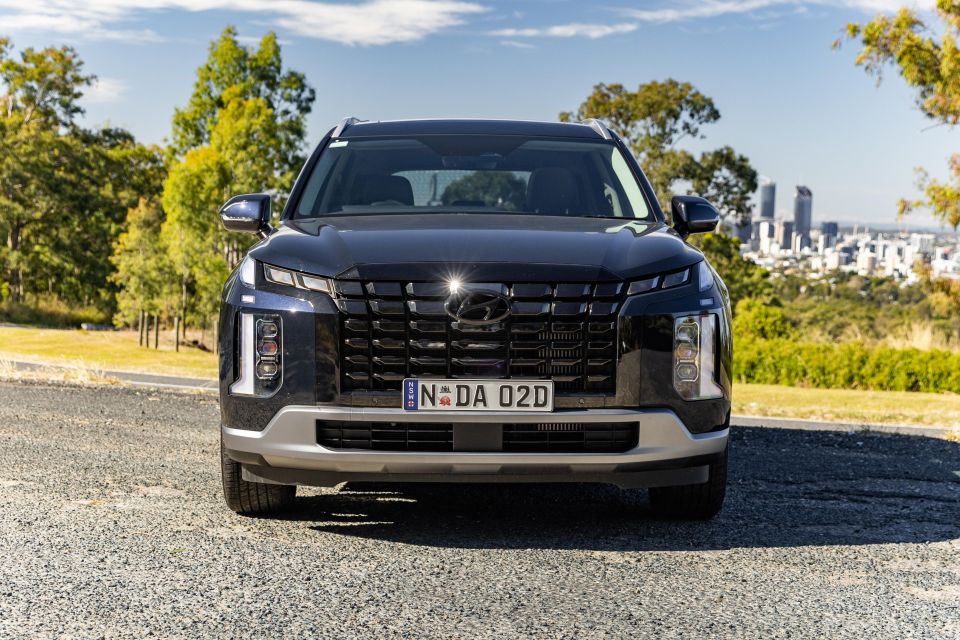
The Palisade costs the same whether you opt for the seven- or eight-seat configurations.
Rival diesel-powered crossovers include the smaller Sorento from sister brand Kia, as well as Mazda’s CX-80 and CX-90.
There’s also a raft of (typically ute-based) body-on-frame off-roaders, ranging from the LDV D90 to the Toyota LandCruiser Prado.
Buy your new car without the stress. It's fast, simple and completely free.
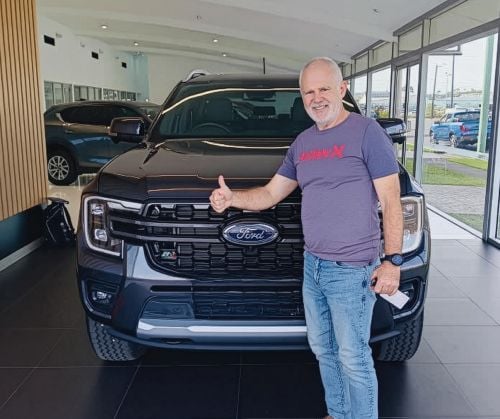
Great service from Travis and team, second time I have used this business would not hesitate to recommend them to anyone
Craig C.
Purchased a Ford Ranger in Sunshine Coast, QLD
CarExpert helped Craig save $7,224 on his Ford Ranger, now let us save you on your next new car.
Get your BEST priceHyundai doesn’t make you feel like a cheapskate for buying the base-model Palisade.
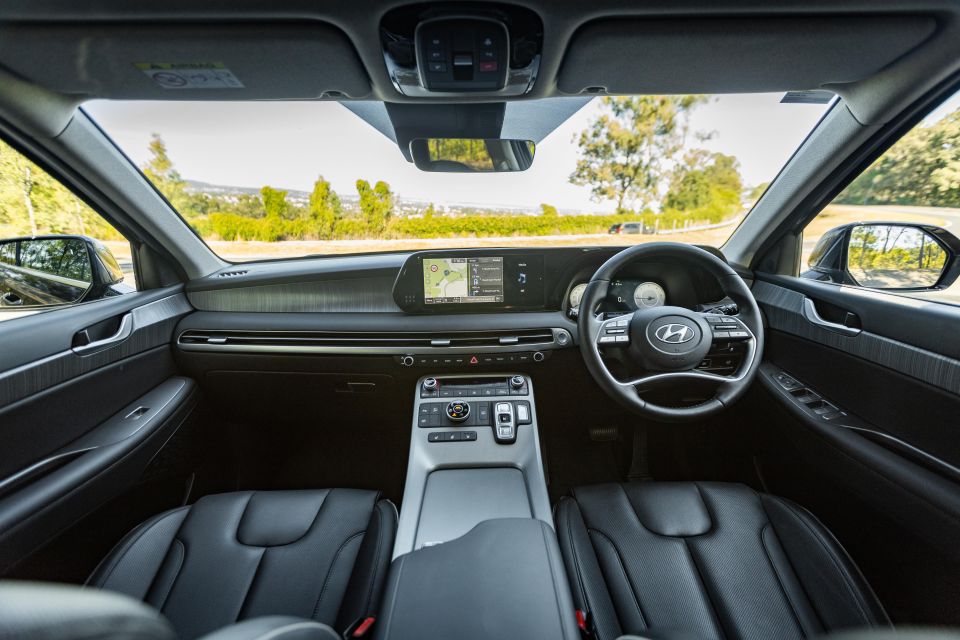
In addition to the unique exterior trim, the Palisade Elite’s interior is largely the same as the Calligraphy’s but with a handful of differences that don’t exactly scream ‘base model’.
Take the headliner and pillar trim, for example. No, it’s not suede like on the Calligraphy, but it’s a lovely knit material. No mouse fur here!
You still get a sunroof, too, though it’s only over the front row.
You miss out on the option of a Dark Khaki interior colourway, but the standard black of the Elite still has plenty of lighter trim for contrast. The metal-look trim on the centre console is attractive and has an interesting texture, though the stripey, metallic inlays on the dashboard and doors are a bit odd.
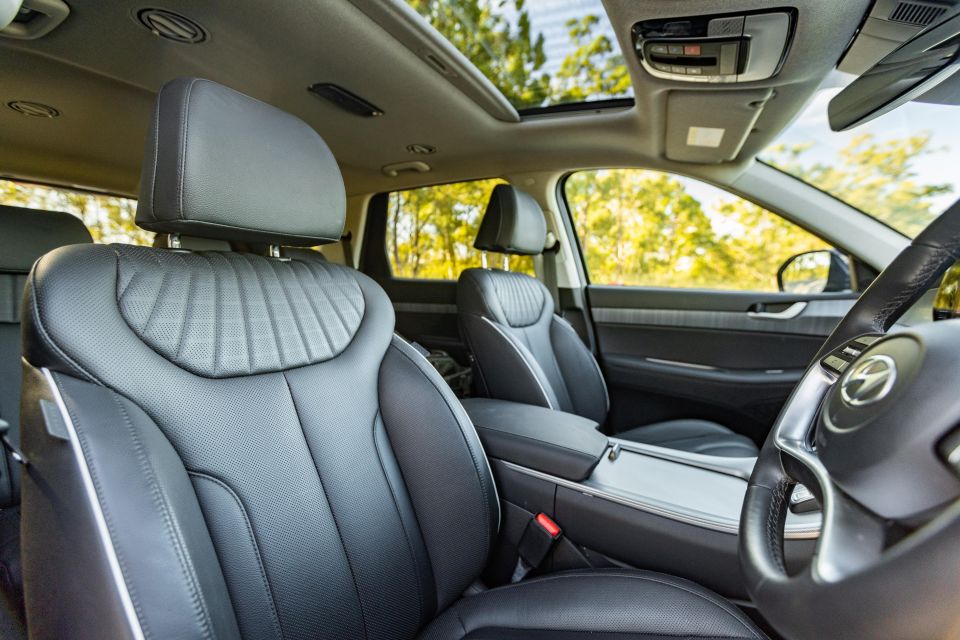
Material quality is just as good as in pricier Palisades, with soft-touch trim on the sides of the centre console and the tops of the dashboard and doors.
The cabin is user-friendly with one exception – why is there a grab handle on the driver’s side up front, but not on the passenger’s side?
Otherwise, there’s oodles of storage space and a logically laid out dashboard.
Below the infotainment touchscreen are the air vents, and below that is a row of hard shortcut buttons to take you to different functions.
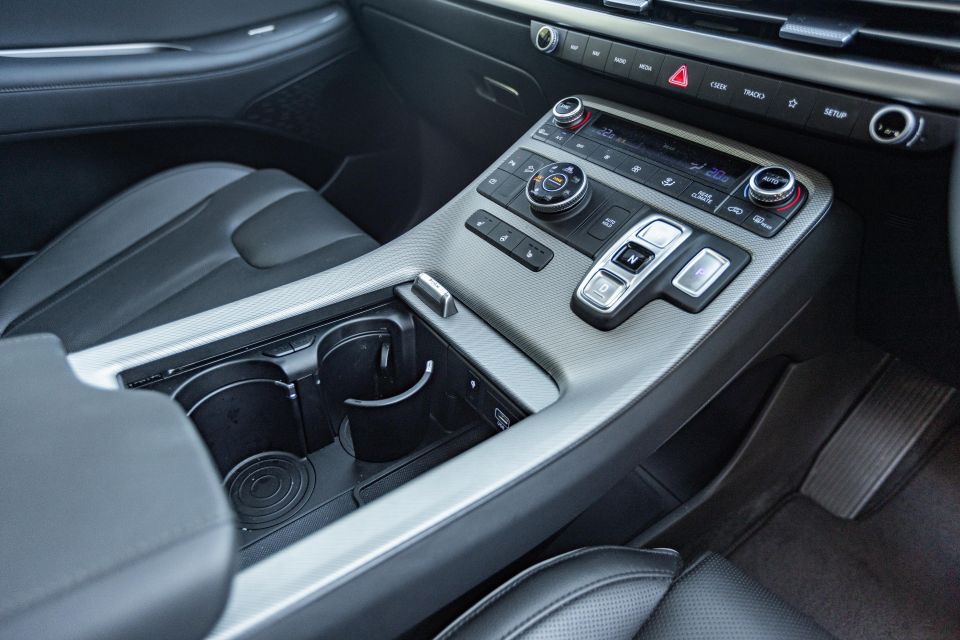
Easy-to-reach physical climate controls sit below these, as does a rotary dial for drive mode selection, and controls for the heated seats, heated steering wheel, hill descent control, camera, parking sensors, and auto hold function.
There are also buttons for operating the transmission, though we’d rather the Palisade use a conventional shifter. Better yet, move to a column-mounted one like other Hyundais to help break up the buttons. While you won’t find a transmission shifter near the steering wheel, there are shift paddles.
Storage is ample. There’s a cavernous centre console bin with USB-C and 12V outlets; a large pit ahead of this which can be concealed beneath a lid, and which contains deployable cupholders; bottle holders in the doors that can fit 1L bottles; and a large shelf under the centre console with another pair of USB-C and 12V outlets.
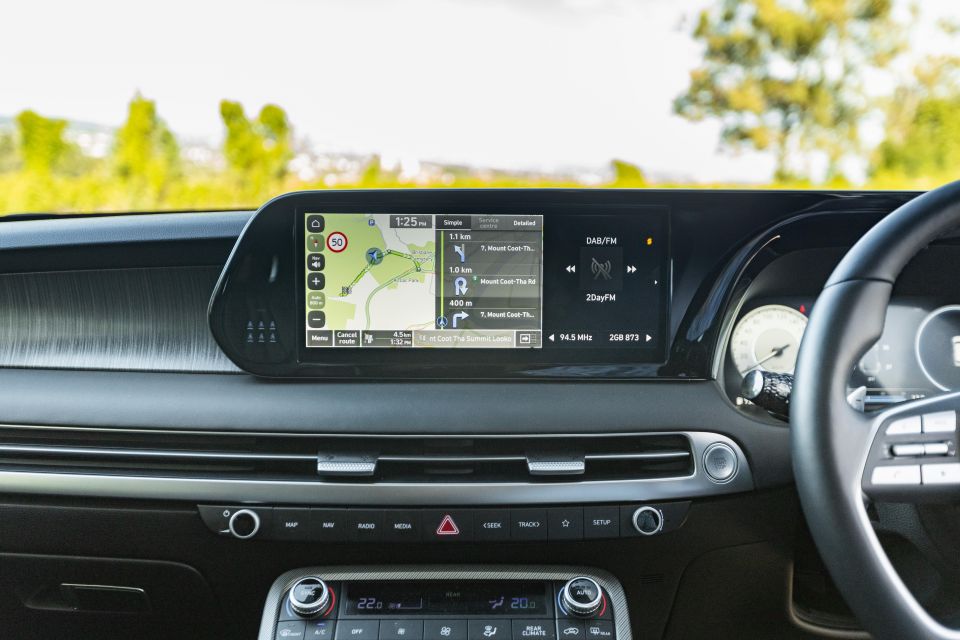
You’ll need a cable to use Apple CarPlay and Android Auto, which is plugged into a USB-A outlet on the centre console.
The infotainment touchscreen measures 12.3 inches, and an update for model year 2023 brought the ability to use a voice assistant to control functions outside of Apple CarPlay and Android Auto.
This came as part of the Bluelink suite of connected services, which also includes an SOS emergency call button, live weather and traffic information for the embedded satellite navigation, and the ability to remotely control functions like the locks and climate control using a smartphone app.
The infotainment system itself remains easy to navigate and quick to respond.
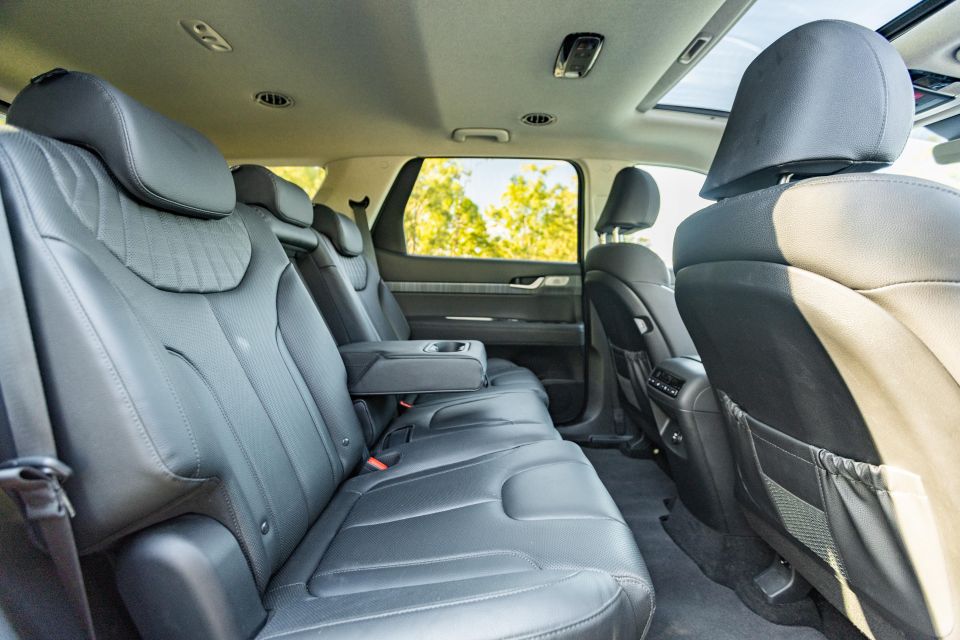
The digital instrument cluster is standard Hyundai fare, with different themes depending on drive mode but no map functionality like you’ll find in Volkswagen Group product.
Step into the spacious second row and you’ll find air vents in the roof, a USB-C outlet in the back of each front seat, and climate controls and a 12V outlet in the back of the centre console.
There’s also a fold-down centre armrest with cupholders, plus cupholders in the doors. Each seat has top-tether child seat anchor points, while the outboard seats have ISOFIX child seat anchor points.
Access to the third row is easy, thanks to a one-touch walk-in function for the second-row seats and a fairly wide opening. It’s even easier with the optional captain’s chairs, as there’s a handy centre aisle.
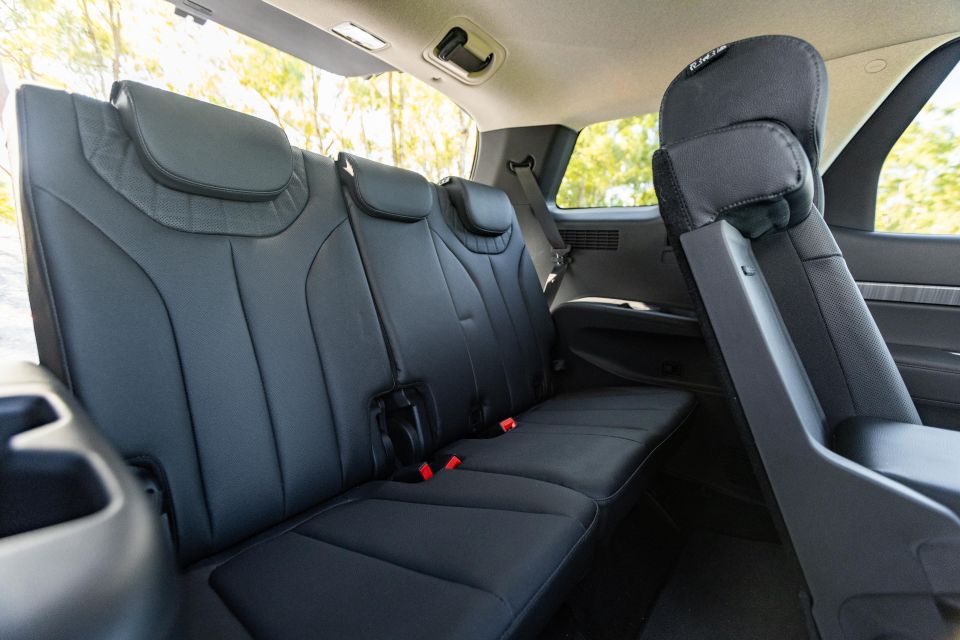
In the third row, there are air vents in the roof, plus more cupholders and a USB-C outlet on each side of the cabin.
There’s seating for three back here, plus two top-tether points and one ISOFIX anchor point for child seats.
The third row is easily among the most comfortable in this segment, and at 180cm tall I can sit back here without having my knees up against the second-row seatbacks and my head against the roof.
Do you know what else I can do that in, though? The new Santa Fe.
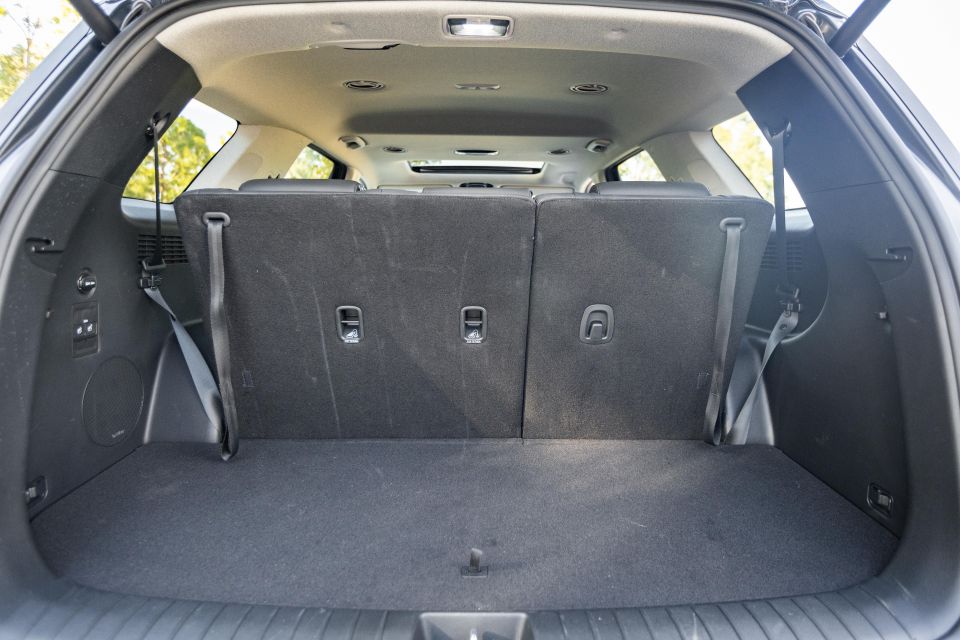
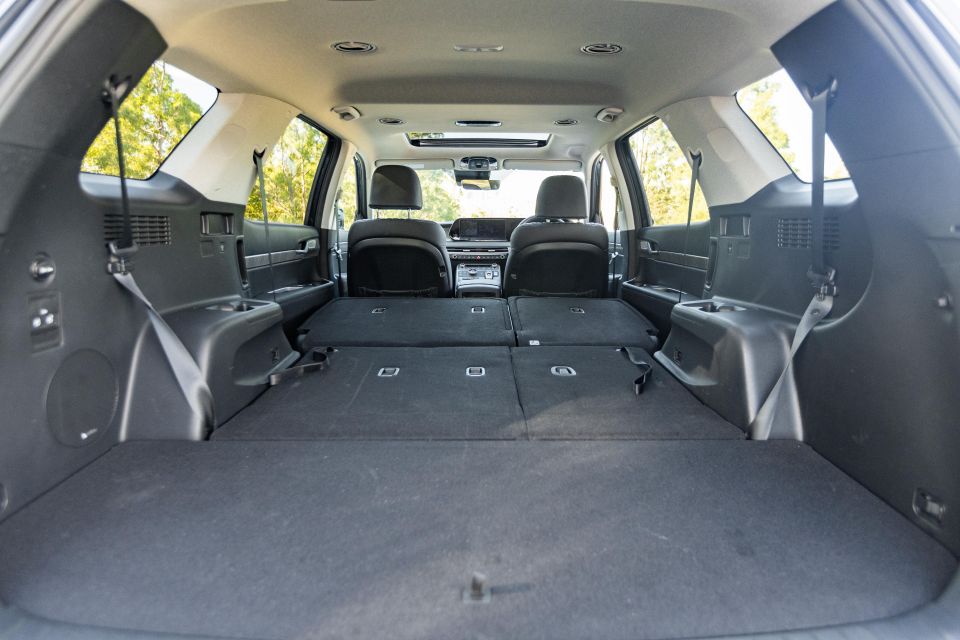
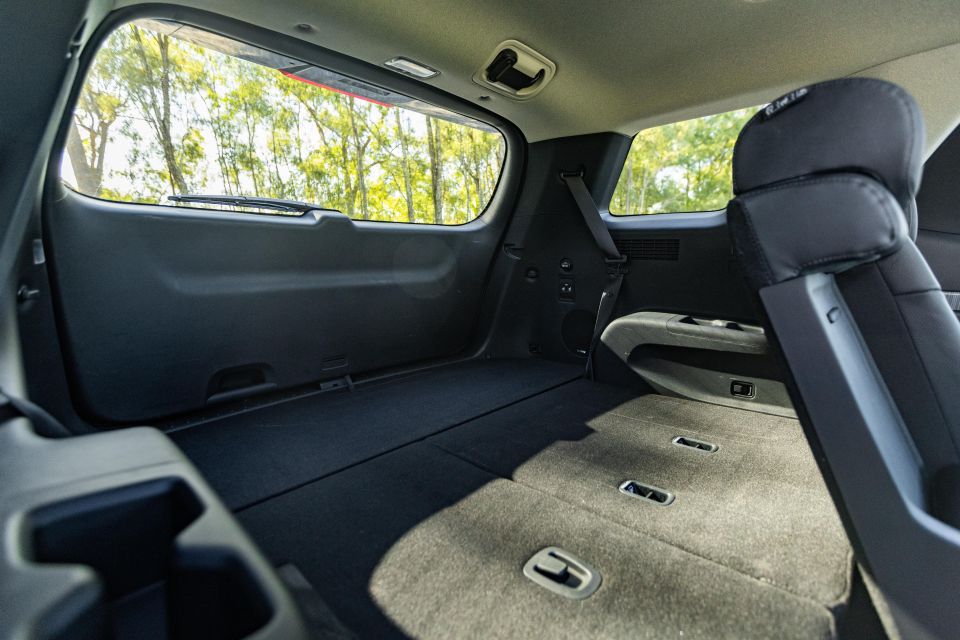
The Palisade has 798mm of third-row legroom, as well as 1402mm of shoulder room and 1111mm of hip room. In contrast, the Santa Fe has 761mm, 1360mm and 1084mm, respectively.
In the boot, there’s a 12V outlet and buttons to drop the second-row seats, which fold almost completely flat.
To fold the third-row seats flat into the floor, simply pull the straps on the back of them.
Under the boot floor is a full-sized alloy spare, a refreshing inclusion in this age of space-savers and tyre repair kits.
| Dimensions | Hyundai Palisade |
|---|---|
| Length | 4995mm |
| Width | 1975mm |
| Height | 1750mm |
| Wheelbase | 2900mm |
| Cargo capacity | 311L (all rows up) 704L (third row folded) |
To see how the Hyundai Palisade lines up against the competition, check out our comparison tool.
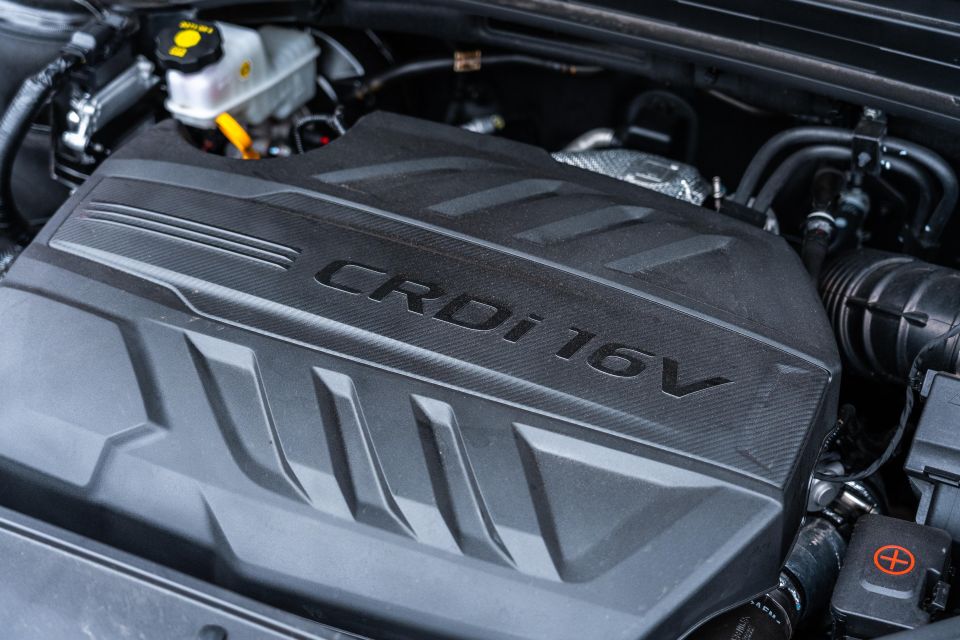
| Specifications | Hyundai Palisade Elite AWD |
|---|---|
| Engine | 2.2L turbo-diesel 4cyl |
| Power | 147kW @ 3800rpm |
| Torque | 440Nm @ 1750-2750rpm |
| Transmission | 8-speed auto |
| Driven wheels | All-wheel drive |
| Weight | 1980kg |
| Fuel economy (claimed) | 7.3L/100km |
| Fuel economy (as tested) | 11L/100km (over the course of a week) 7.9L/100km (inner-city, suburban and highway loop) |
| Fuel tank capacity | 71L |
| Fuel requirement | Diesel |
| CO2 emissions | 193g/km |
| Emissions standard | Euro 5 |
| Braked tow capacity | 2200kg |
| Maximum tow ball weight | 100kg (180kg with optional Load Assist Kit) |
While we saw fairly high fuel consumption over the course of a week, with a figure of 11L/100km, this was with a heavy urban skew. In a Highlander diesel previously, we averaged 8.8L/100km.
To see how the Hyundai Palisade lines up against the competition, check out our comparison tool.
I remember having enjoyed driving this big crossover, so I was keen to get back behind the wheel.
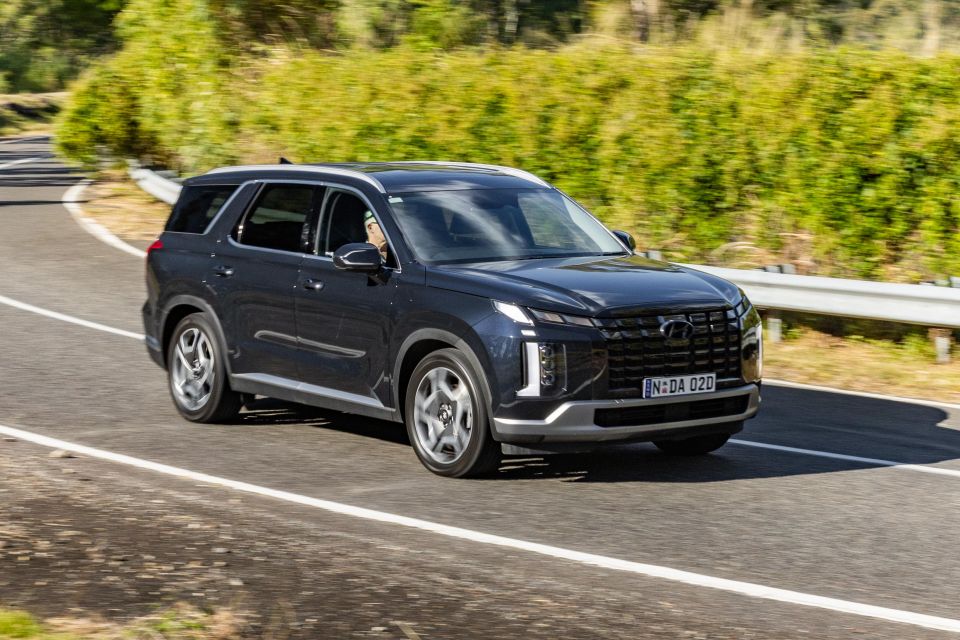
I happened to have a headache when I first stepped in, and it only got worse when I fired up that diesel engine. Gee, I don’t remember this sounding so rough on idle.
There’s an omnipresent clatter from the turbo-diesel engine, including while you’re stopped at traffic lights as there’s no idle stop/start. It seems scarcely quieter than more capable diesel-powered, body-on-frame off-roaders.
Turbo-diesel fours are never especially pleasant to listen to, and the Palisade is no exception. They are typically known for their low-end grunt though, and the Palisade definitely has this. The engine is aided by a smooth-shifting transmission.
It might sound like a diesel off-roader, but this unibody crossover can’t match the likes of the Ford Everest and Isuzu MU-X in terms of braked towing capacity. The Palisade has 2200kg against their 3500kg figures.
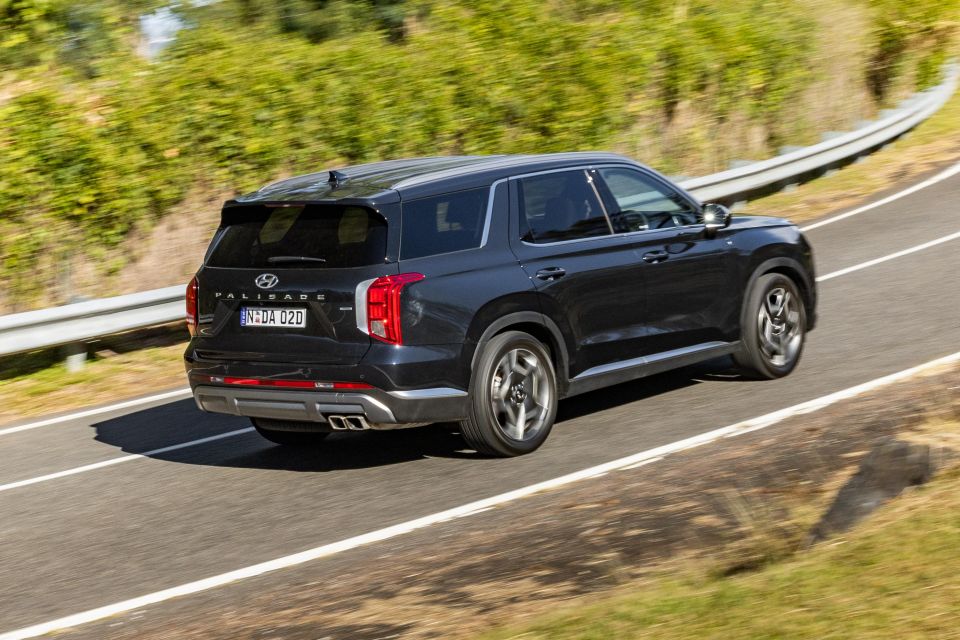
Where expert car reviews meet expert car buying – CarExpert gives you trusted advice, personalised service and real savings on your next new car.
The sound the Palisade makes mightn’t give you a migraine, but the overspeed alert is sure to raise your blood pressure. It bings every time you enter a new speed limit zone (why?) and then bings again if you exceed the speed limit.
Constant nagging and scolding doesn’t make for a healthy relationship, and we can’t imagine it makes for a pleasant car ownership either. You can turn this off but it’ll frustratingly default to on each time, while turning off the overspeed alerts turns off the traffic sign recognition system altogether.
We’ve been in Hyundai products where you can program the star shortcut button on the steering wheel to take you directly to the driver assist menu on the touchscreen, saving you a button press in the frustrating journey to turn this system off, but this didn’t seem to work in the Palisade.
The good news is the rest of the driving experience is much better.
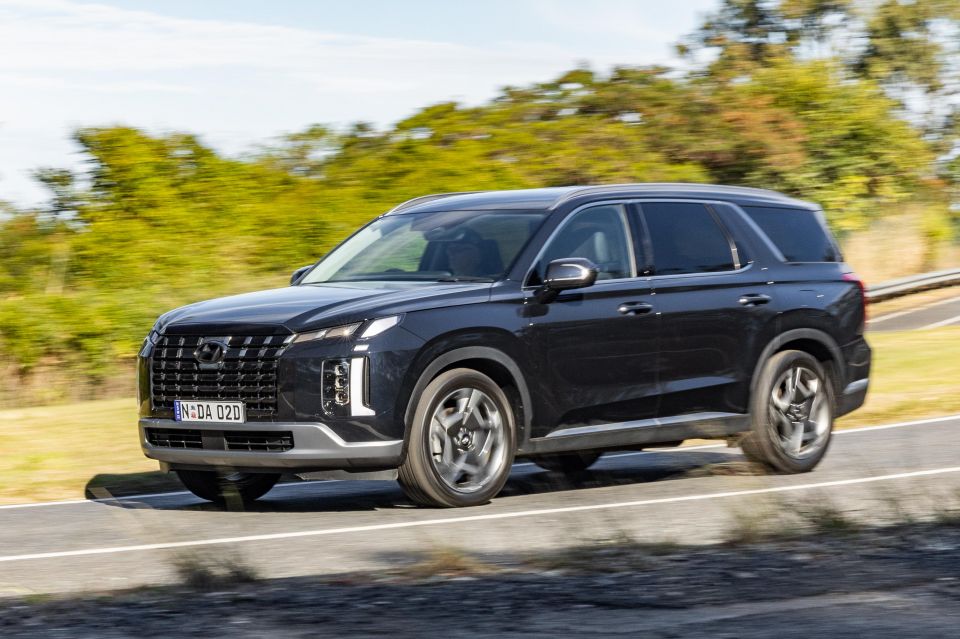
The ride isn’t quite as cushy as you might expect and some impacts are felt in the cabin, but overall it’s still acceptable for the class. Body control is quite good too, with not too much float on undulating roads.
The steering is well-judged for this class of vehicle. There’s not a massive amount of feel through the wheel, but the weighting is spot-on – the wheel is easy to twirl at low speeds, making parking this big bus a breeze, while it never feels too light or vague out on the open road.
If you want some more weight to the steering, you can turn on Sport mode but this also sees the Palisade hold gears for longer.
The Palisade feels nimbler than its dimensions would suggest, and definitely feels more car-like to drive than similarly priced SUVs with traditional ladder-frame underpinnings.
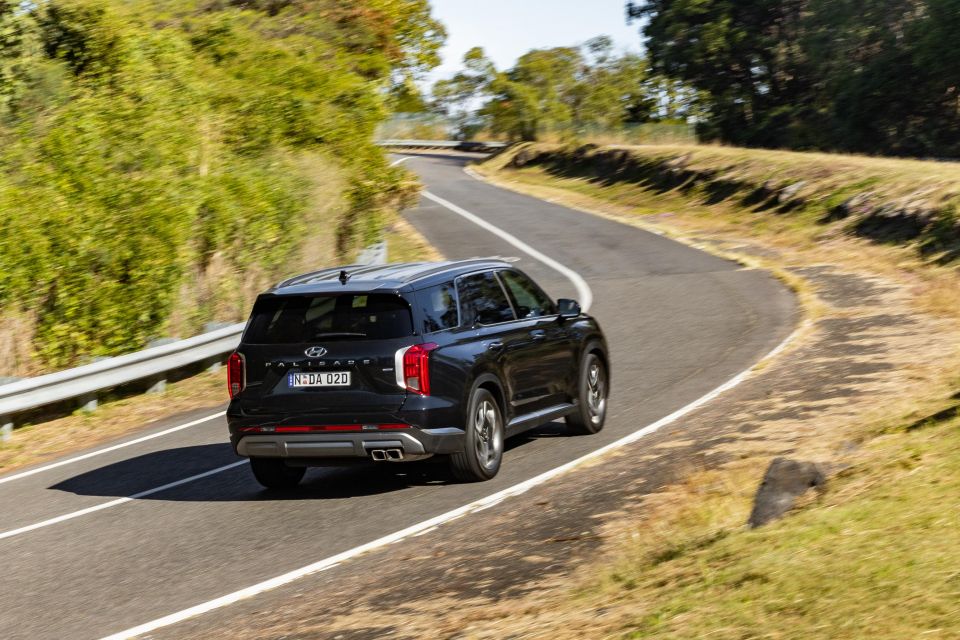
Where the front-wheel drive V6 lights up the front tyres with too heavy a right foot or too slick a surface, there’s no such unseemly wheelspin from the all-wheel drive diesel.
The security of all-wheel drive plus the superior fuel economy combine to make the diesel a more appealing option than the V6, even if it doesn’t sound as good. But we can’t wait for the inevitable hybrid version of the next generation…
Get on the highway and the Palisade proves a comfortable cruiser. The adaptive cruise control and Lane Following Assist help you take on long distances with ease, while road and wind noise are well-suppressed.
The standard lane-keep assist is more assertive than some rival systems, but it intervenes smoothly and skilfully and even handles curvy roads well.
While the Palisade was previously available in an unnamed base trim, it’s now available only in Elite, Calligraphy and Calligraphy Black Ink variants.
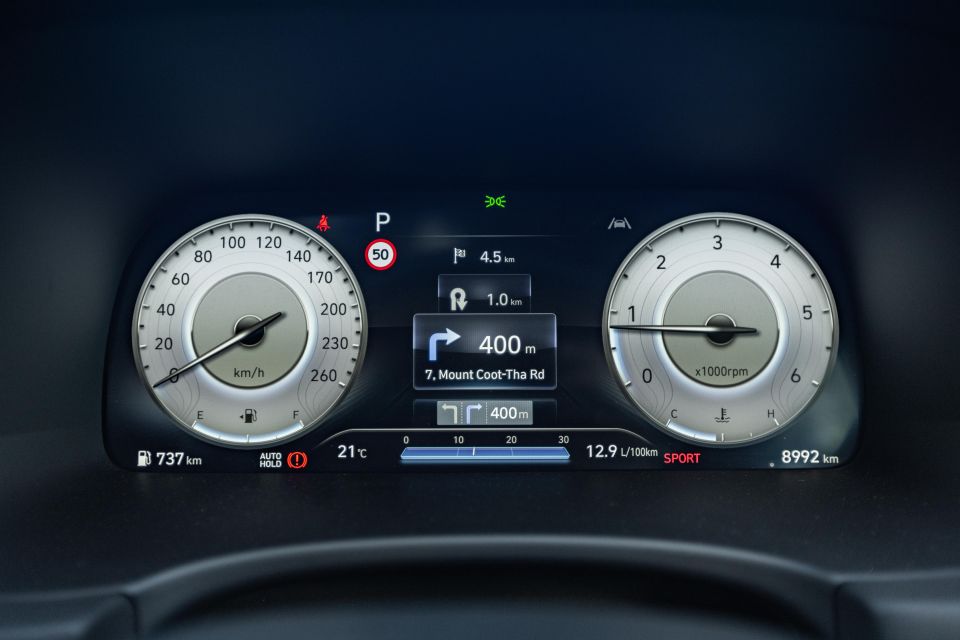
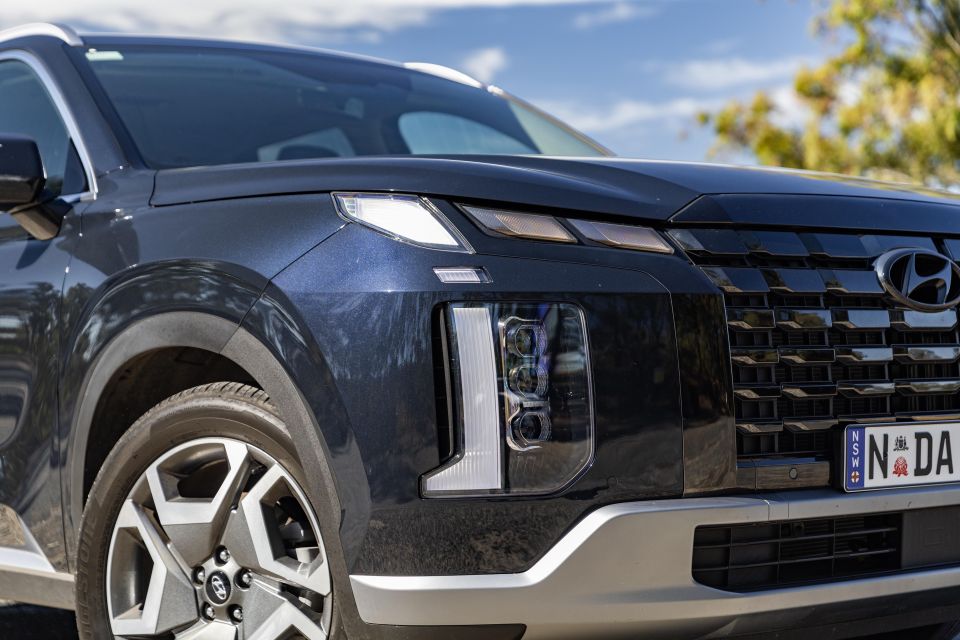
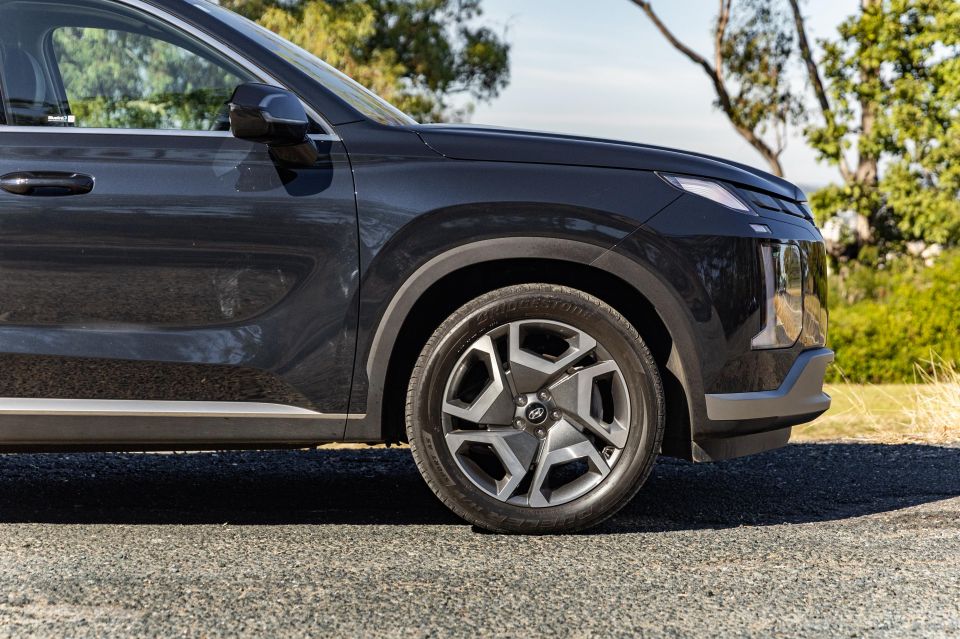
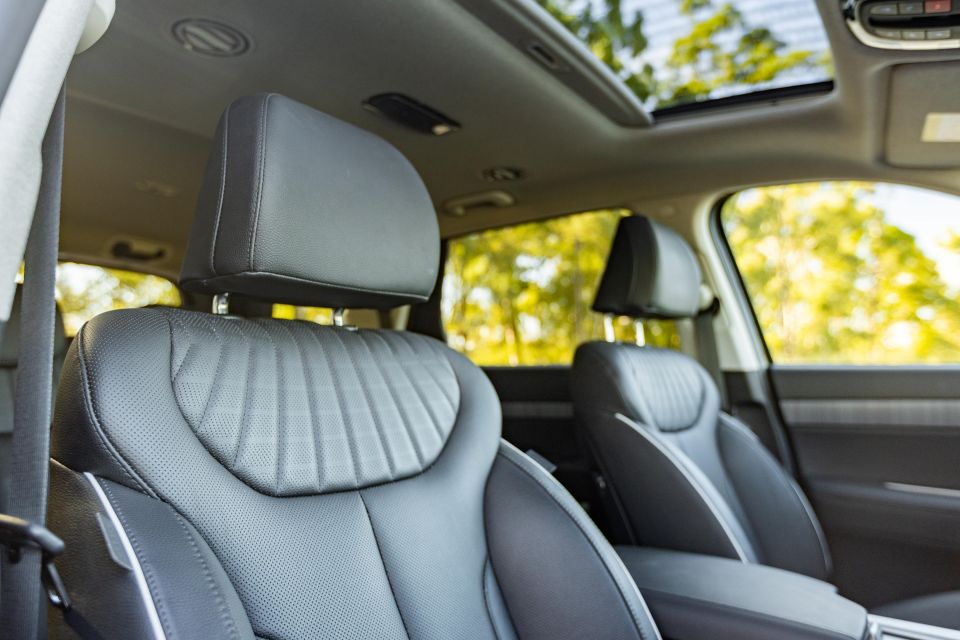
Hyundai Palisade Elite equipment highlights:
The Calligraphy adds:
The Calligraphy Black Ink adds:
All models feature Bluelink connected services, which include:
The Hyundai Palisade wears a five-year ANCAP safety rating. It was re-tested by ANCAP following a mid-life update in 2022.
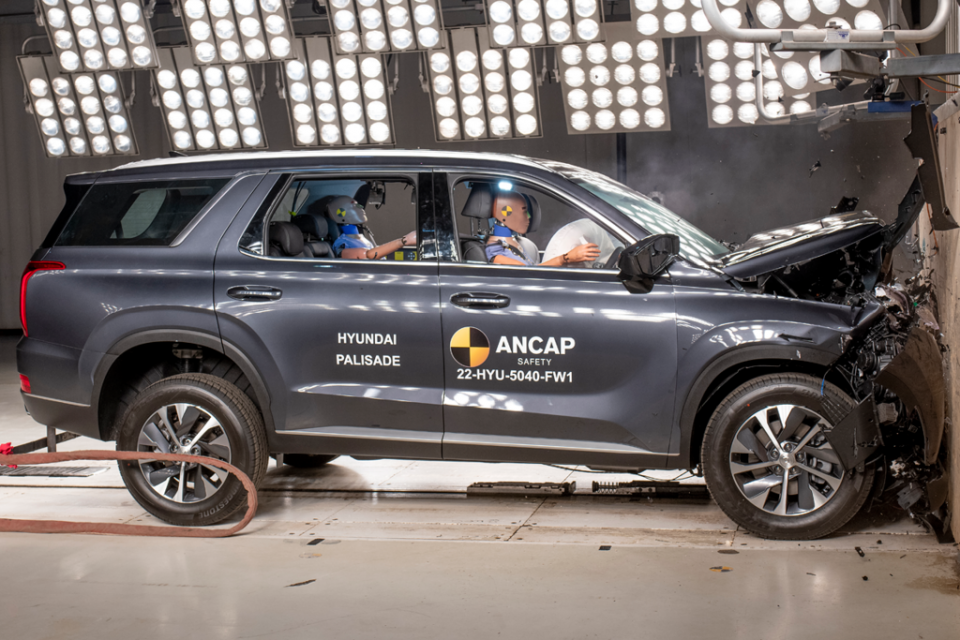
| Category | Hyundai Palisade |
|---|---|
| Adult occupant protection | 32.21 out of 38 (84 per cent) |
| Child occupant protection | 43.24 out of 49 (88 per cent) |
| Vulnerable road user protection | 33.75 out of 54 (62 per cent) |
| Safety assist | 13.41 out of 16 (83 per cent) |
Standard safety equipment includes:
The Calligraphy and Calligraphy Black Ink also feature:
| Servicing and Warranty | Hyundai Palisade |
|---|---|
| Warranty | 5 years, unlimited kilometres |
| Roadside assistance | Lifetime (service activated) |
| Service intervals | 12 months or 15,000km |
| Capped-price servicing | Lifetime |
| Total capped-price service cost | 12 months/15,000km: $489 24 months/30,000km: $489 36 months/45,000km: $489 48 months/60,000km: $589 60 months/75,000km: $489 Total over five years: $2545 |
To see how the Hyundai Palisade lines up against the competition, check out our comparison tool.
Buy your new car without the stress. It's fast, simple and completely free.

Great service from Travis and team, second time I have used this business would not hesitate to recommend them to anyone
Craig C.
Purchased a Ford Ranger in Sunshine Coast, QLD
CarExpert helped Craig save $7,224 on his Ford Ranger, now let us save you on your next new car.
Get your BEST priceWe’re excited for the next-generation Hyundai Palisade, but that’s not to say the current model is an also-ran.
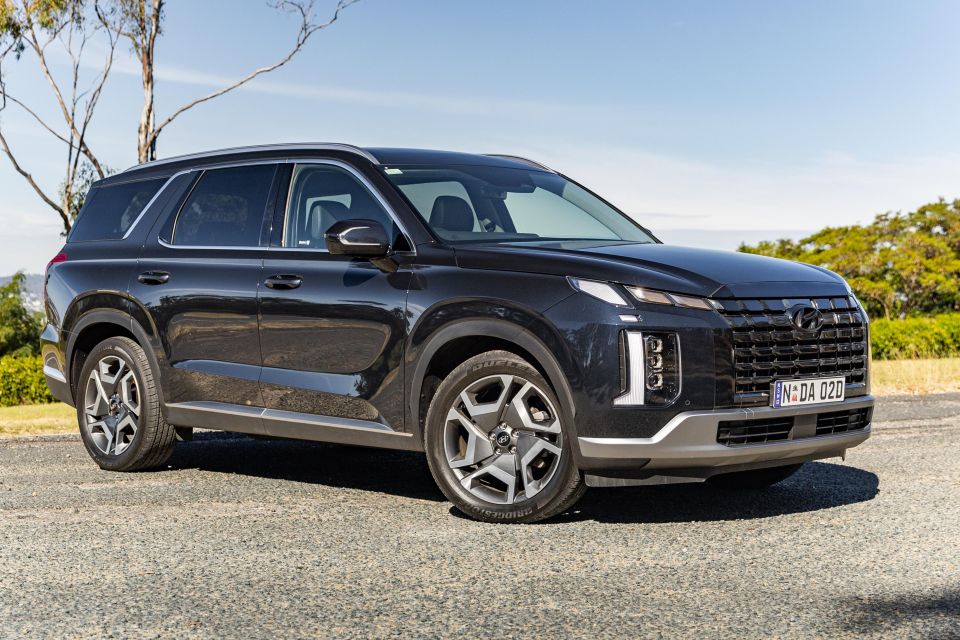
It still has a slight edge over the Santa Fe in interior dimensions, though the gulf has narrowed.
It does, however, still offer a diesel engine which the new Santa Fe doesn’t. It’s not the most refined unit, but there’s plenty of torque and it’s significantly more efficient than the base petrol V6.
It might sound like a diesel off-roader inside, but the likes of the MU-X and Everest wish they had an interior this nice. Not only is it spacious, but it’s user-friendly and classy.
The Elite may be the entry-level Palisade once again, but Hyundai doesn’t make you feel like a cheapskate for choosing it over a Calligraphy.
Unless you simply must have a diesel, though, or you can’t get past the Santa Fe’s looks – and we know there’s plenty of you – we’d recommend also checking out the newer, smaller crossover from Hyundai.
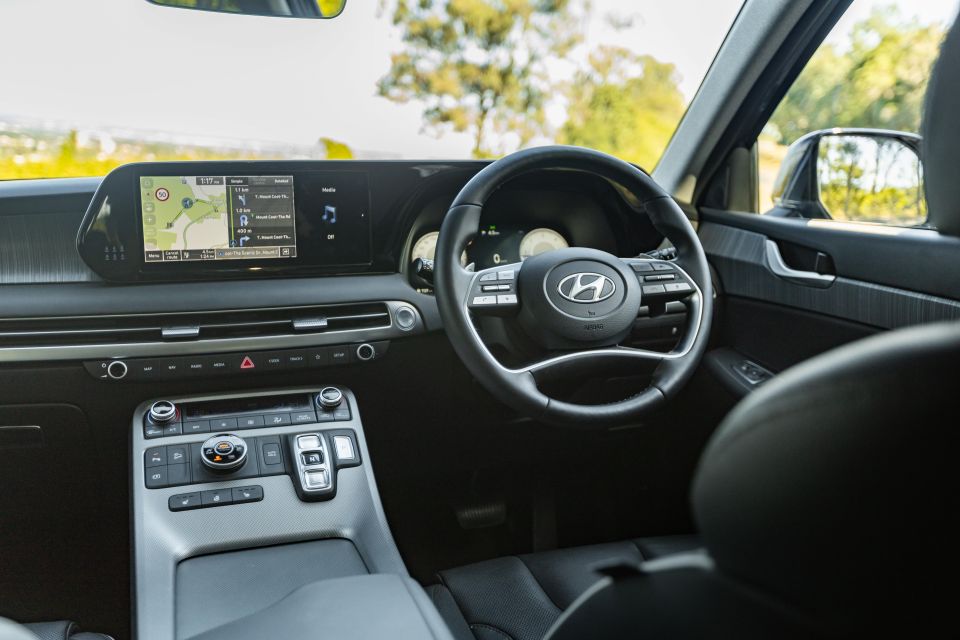
Where expert car reviews meet expert car buying – CarExpert gives you trusted advice, personalised service and real savings on your next new car.
William Stopford is an automotive journalist with a passion for mainstream markets and historical automotive pieces.


Max Davies
3 Months Ago
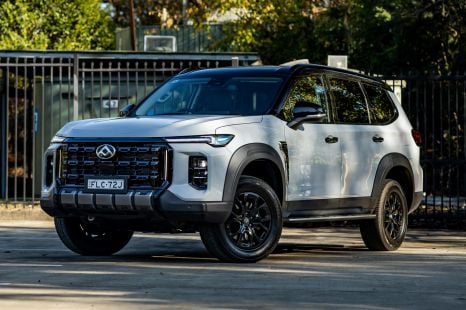

Matt Campbell
2 Months Ago
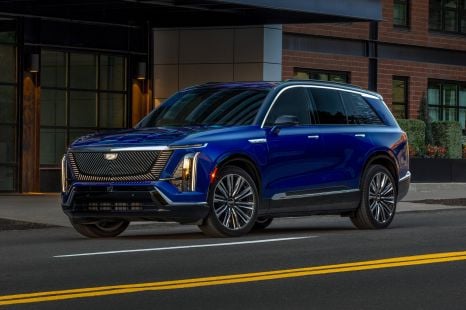

William Stopford
2 Months Ago
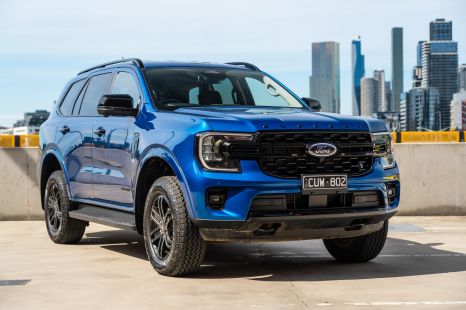

Josh Nevett
2 Months Ago
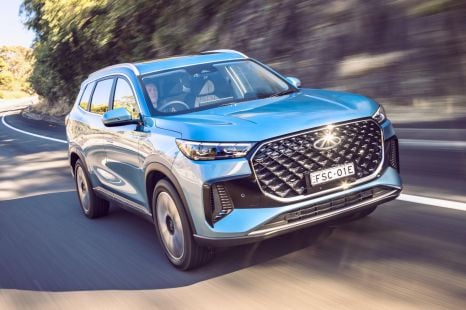

Max Davies
1 Month Ago
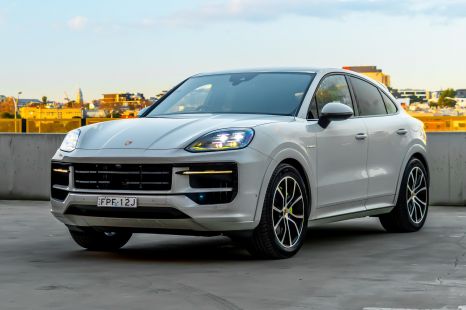

James Wong
28 Days Ago